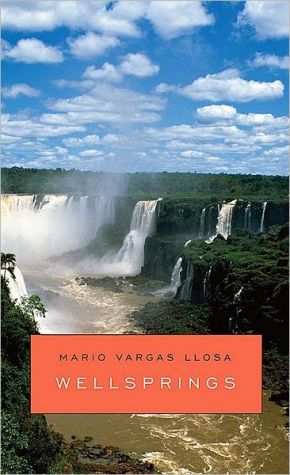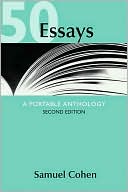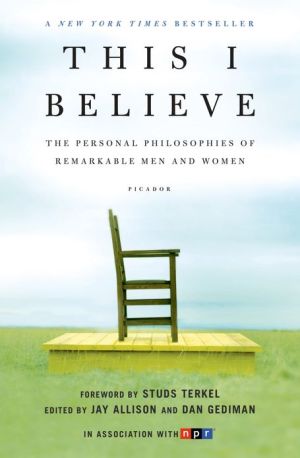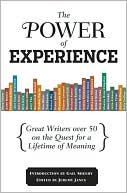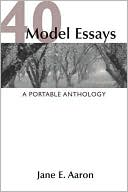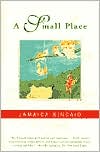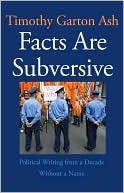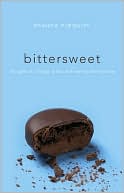Wellsprings
When a master novelist, essayist, and critic searches for the wellsprings of his own work, where does he turn? Mario Vargas Llosa—Peruvian writer, presidential contender, and public intellectual—answers this most personal question with elegant concision in this collection of essays. In “Four Centuries of Don Quixote,” he revisits the quintessential Spanish novel—a fiction about fiction whose ebullient prose still questions the certainties of our stumbling ideals. In recounting his illicit,...
Search in google:
When a master novelist, essayist, and critic searches for the wellsprings of his own work, where does he turn? Mario Vargas Llosa—Peruvian writer, presidential contender, and public intellectual—answers this most personal question with elegant concision in this collection of essays. In “Four Centuries of Don Quixote,” he revisits the quintessential Spanish novel—a fiction about fiction whose ebullient prose still questions the certainties of our stumbling ideals. In recounting his illicit, delicious discovery of Borges’ fiction—“the most important thing to happen to imaginative writing in the Spanish language in modern times”—Vargas Llosa stands in for a generation of Latin American novelists who were liberated from their sense of isolation and inferiority by this Argentinean master of the European tradition.In a nuanced appreciation of Ortega y Gasset, Vargas Llosa recovers the democratic liberalism of a misunderstood radical—a mid-century political philosopher on a par with Sartre and Russell, ignored because “he was only a Spaniard.” And in essays on the influence of Karl Popper and Isaiah Berlin, the author finds an antidote to the poisonous well of fanaticism in its many modern forms, from socialist utopianism and nationalism to religious fundamentalism. From these essays a picture emerges of a writer for whom the enchantment of literature awakens a critical gaze on the turbulent world in which we live.The Barnes & Noble ReviewThis vigorous, high-spirited, wide-ranging survey of personally admired authors hardly limits itself to the literary world. Befitting Mario Vargas Llosa's long and distinguished career as both novelist and statesman, the pieces in this collection cover aspects of all three overlapping worlds postulated by Karl Popper, the philosopher whose works occupy Vargas Llosa's mind in his concluding essay. Carried aloft by Vargas Llosa's pellucid prose -- his esteem for the fabled clarity of Ortega y Gasset is an internalized and externalized grail -- the reader is treated to sharp and wise observations on "the world of natural and material objects; the subjective and private world of the individual mind; and the world of cultural creativity." Vargas Llosa's praise for Isaiah Berlin's work might equally be applied to his own: "Each essay in this magisterial work reads like a chapter of a novel whose action takes place in a world of thought and in which the heroes and villains are ideas." Whether examining the cosmopolitan erudition of Borges, the fantastical conceits of Cervantes, the fallacies and dangers of nationalism, or the half-mythic origins of his native Peru, the author provides immense delights in the form of spot-on metaphors, striking aphorisms, and valuable historical and sociological insights: "The most remarkable aspect of the [Incan] civilization [is that] it managed to eradicate hunger in that immense region." Ultimately, these essays trumpet the supreme value of fiction: as a bulwark against the dissatisfaction, disillusionment, and disenchantment engendered by the exigencies of existence. --Paul DiFilippo
Four Centuries of Don Quixote 1The Fictions of Borges 26Ortega y Gasset and the Revival of a Liberal 47The Challenge of Nationalism 70Fiction and Reality in Latin America 109Isaiah Berlin, a Hero of Our Time 133Updating Karl Popper 160Acknowledgments 201
\ The AgeAs in his previous collection of essays, The Temptation of the Impossible, Mario Vargas Llosa proves himself to be a superb practitioner, critic and essayist. Too often when critics write about their favourite authors they simply dwell on them. But when Vargas Llosa discusses the works of pivotal Latin American short-fiction writer Jorge Luis Borges, he makes you want to go and re-read Borges...First-rate essays, by a class act.\ — Steven Carroll\ \ \ \ \ \ Times Literary SupplementSeven stimulating essays by one of Latin America's greatest living writers...[Vargas Llosa] frequently—and tellingly—reminds us that fiction must have the power to enchant us.\ — Adam Feinstein\ \ \ \ Washington TimesVargas Llosa ponders the thinkers, teachers and ideas that mean the most to him. It is a glimpse into the workings of a marvelous mind and an instructive adventure besides...In the end, it is the gaze of this graceful writer who, by shedding a light on what's inspired him, offers a gift to all who care about what fiction, philosophy and politics can do. And as much as readers will value what he has to say about how we humans cope with our turbulent world, it is what he knows about literature that, above all else, makes this little book sing.\ — Carol Herman\ \ \ \ \ \ Publishers WeeklyIn seven incisive essays, novelist and Peruvian political aspirant Vargas Llosa reflects on literature and history, the crucial role of fiction in human society and the link between totalitarianism and nationalism. Lucidly and elegantly, he explores the sources of inspiration for his literary oeuvre, analyzing the significance for Latin American writers of Borges, whose works served to dispel "a kind of inferiority complex... that kept us imprisoned in a provincial outlook." His social consciousness protests the suppression of the Catalans and the Basques in modern Spain, as well as the treatment of indigenous Indians in Latin America. He conjectures that it's the uneasy blend of two cultures, "one Western and modern, the other aboriginal and archaic," that accounts for the prevalence of surrealism in Latin American fiction. Among the greatest influences on his intellectual development he cites his mentor, Porras Barrenechea, a professor of history who illuminated the myths and legends that underlie Peruvian fiction, and the political theorist Ortega y Gasset. Although most of these pieces originated as public lectures, the themes form a unity. The relationship between history and fiction is convincingly explained: "[t]he most fertile moments for fiction are those when collective certainties... break down," because then people "look to the order and coherence of the fictional world." (May)\ Copyright © Reed Business Information, a division of Reed Elsevier Inc. All rights reserved.\ \ \ \ \ The Barnes & Noble ReviewThis vigorous, high-spirited, wide-ranging survey of personally admired authors hardly limits itself to the literary world. Befitting Mario Vargas Llosa's long and distinguished career as both novelist and statesman, the pieces in this collection cover aspects of all three overlapping worlds postulated by Karl Popper, the philosopher whose works occupy Vargas Llosa's mind in his concluding essay. Carried aloft by Vargas Llosa's pellucid prose -- his esteem for the fabled clarity of Ortega y Gasset is an internalized and externalized grail -- the reader is treated to sharp and wise observations on "the world of natural and material objects; the subjective and private world of the individual mind; and the world of cultural creativity." Vargas Llosa's praise for Isaiah Berlin's work might equally be applied to his own: "Each essay in this magisterial work reads like a chapter of a novel whose action takes place in a world of thought and in which the heroes and villains are ideas." Whether examining the cosmopolitan erudition of Borges, the fantastical conceits of Cervantes, the fallacies and dangers of nationalism, or the half-mythic origins of his native Peru, the author provides immense delights in the form of spot-on metaphors, striking aphorisms, and valuable historical and sociological insights: "The most remarkable aspect of the [Incan] civilization...[is that] it managed to eradicate hunger in that immense region." Ultimately, these essays trumpet the supreme value of fiction: as a bulwark against the dissatisfaction, disillusionment, and disenchantment engendered by the exigencies of existence. --Paul DiFilippo\ \
